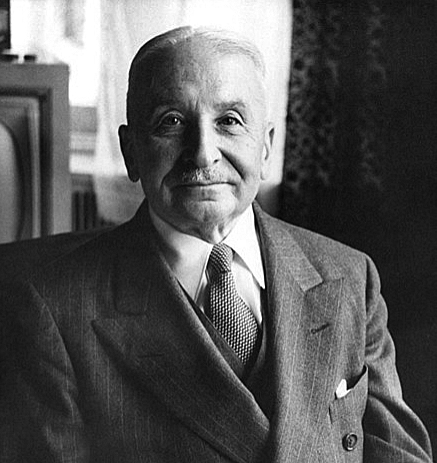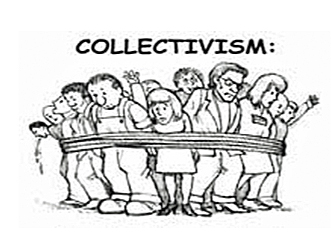
- Articles
Regimentation in medicine and its human price (Part 2) by Russell L. Blaylock, MD
When I was in training, we used to hear horror stories about the coming “cook-book” medicine in which doctors would be given a list of preordained methods for diagnosing and treating various diseases handed down by medical elites. This relegates the physician to little more than a cog in the wheel of the State, obediently following orders handed down from the bureaucrats above.
Again, we come to the question of — Whose evidence? As physicians, we were taught the art of observation, use of intuitive sense, drawing on our experiences, and most importantly, personal interaction with patients on an individual basis. The collectivists see patients, as they see all humanity, as a collective of human beings with no one individual being really that important.
While many elitists in medicine will find that statement an affront, a closer examination finds this to be true. Based on present thinking, a treatment should not be implemented until there is accepted proof that the treatment works and that it is reasonably safe. Despite this laudable goal, we see that when alternative treatments have shown extreme safety, sound scientific justification and considerable rational evidence that it is effective, the elite of the orthodoxy more often rejects its use.
At this stage we must examine the effect of such a decision by those in positions of power and responsibility. Let’s say that disease-X has been very resistant to attempts at conventional treatment and that the drugs used to treat this disease are associated with a considerable number of side effects. Additionally, disease-X affects some 10 million people a year. Then let us assume that a physician, who we shall call Dr. Bob, a family practitioner practicing in Clayton, Alabama, observes that when he gives his patients with the disease-X high doses of Ginkgo biloba, most get well and many others are dramatically improved.
Yet, when Dr. Bob tries to get the results of his observations published in the medical literature, he is rejected on the basis that the conventional scientific opinion sees no benefit to be had from Dr. Bob’s treatment. Because of his status as “just a practicing physician in a small rural Alabama town,” he is looked down on and never invited to present his ideas before other physicians.
Then 10 years later, medical scientists find that indeed Gingko biloba cures most people with disease-X. Suddenly, Ginkgo biloba is the medication of choice for this dreaded disease. What is forgotten is what happened to the 2 to 5 million people who suffered or died of disease-X during the period the “scientists/physician elites” needed to confirm what Dr. Bob observed much earlier. In essence, I am saying we are paying a heavy price for our worship at the altar of pristine “science.”
Another rarely mentioned topic is the unrecorded aspects of disease. Most physicians and surgeons who have practiced more than 20 years have noticed that often diseases present in ways contrary to textbook descriptions or in ways never described during medical training. I once had a neurosurgical friend who told me he wished someone would write a book on the unreported manifestations of disease, since it seemed that most patients presented in ways contrary to that described in the textbooks. In fact, there are a few such textbooks, but even then they are quite limited in scope.
To the collectivist, there is no problem, since they are focused only on their objective — that is, “to protect the masses,” which endorses the idea that the “end justifies the means.” The individual is subject to being sacrificed to the “plan” and is really not an object of their concern. We not only see this with the vaccine program, but recently we have witnessed children, even as old as 18 years of age, being forced by court order to undergo cancer chemotherapy, not only against the will of the parents but of the elder child himself. This is all part of the mentality of collectivist regimentation, that is, the “orthodox treatments” are so sacrosanct in the eyes of the medical elites that individuals must be forced against their will to submit to them. The problem will only get worse, once the paradigm is accepted.
The Source of Creativity
Scattered across America there are literally thousands of small town doctors who have developed new and innovative techniques, alternative healing treatments, and other specialized ways to improve diagnosis and treatment of disease that will never see the printed page.
The history of science should have taught us that creativity and innovation often come from the most unsuspecting quarters of society and not always from the ivory towers of academia. One of my favorite stories is how a janitor working in a museum informed the quite famous paleontologist that he had the wrong skull on the assembled brontosaurus skeleton. Naturally, the paleontologist thought he was not only nuts, but also quite arrogant to question his expertise. It turned out the janitor was correct. You see, he was a person who, on his own time, studied dinosaur bones. Such stories are endless.
The idea of regimentation in medicine necessarily means that an elite body of physicians (usually specialists) will make the “evidence-based” protocols that physicians will be expected to follow. In the beginning it was the insurance companies and government programs that pushed such regimentation, but now we see medical societies and other physician groups joining the collectivist destruction of creative, humane medicine.
The medical schools, as well as intern and resident training programs, are also joining the collectivist bandwagon. When budding young doctors are trained from the beginning to adhere to collectivist thinking and accept the view that the individual doctor has nothing to contribute to the intellectual growth of medical care, we will rapidly descend into an age of darkness. Doctors will be forced to watch helplessly as their patients die or are harmed by impersonal regimenting protocols. It is reminiscent of the surreal medical thriller Sutton’s Law by Dr. Jane Orient.[1]
On many occasions I have been able to save a patient because I used my ability, experience, intuitive sense, creative ideas and individually developed solutions to a problem instead of relying on the rote learning from my years in training. The historical lesson we must keep in mind is that each practicing physician has something to contribute.
I wish to make it clear that I am not opposed to protocols as suggestions or voluntary guidelines. What I object to is rigid enforcement of regimentation either by the State, the medical societies or hospital boards. Under such a system, doctors become nothing more than automatons; cogs in an all-embracing collectivist machine. This stifles creativity, innovation and the development of better ideas on how to effectively, safely and successfully treat patients and treat them as individual human beings, not as statistical tables or collectives.

In his book Bureaucracy, Ludwig von Mises (1881-1973) points out not only the stifling effect of regimentation generally, but also focuses on the devastating effect on the human intellect, especially genius.
A creative genius is precisely a man who defies all schools and rules, who deviates from the traditional roads of routine and opens up new paths through land inaccessible before. A genius is always a teacher, and never a pupil; he is always self-made. He does not owe anything to the favor of those in power. But on the other hand, the government can bring about conditions which paralyze the efforts of a creative spirit and prevent him from rendering useful services to the community.[2]
We should not lose sight of the fact that while the elitists create the protocols, it is the bureaucrats who will enforce them. And as von Mises notes: “Their main concern is to comply with the rules and regulations, no matter whether they are reasonable or contrary to what is intended. The first virtue of an administrator is to abide by the codes and decrees.”
In addition, we must appreciate that it is the physician who will become the bureaucrat, since under such a regimented system he becomes the enforcer. Also sacrificed on the altar of the collective is initiative, since regimentation discourages personal “displays of talents and gifts.”
Once the spirit of the truly creative physician is broken by the collectivist system, those remaining will become little more than apathetic workers making their way through the day, hoping they haven’t in some way offended the system. They become little more than pharmacists dispensing pills.
The Growth of Collectivism in Medicine
One way to promote the idea of collectivist regimentation in medicine is through support by major foundations. One such foundation seeking to influence the behavior of practicing physicians by using the god-term “evidence-based medicine” is the United Health Foundation, which states its goals as two fold. First, to establish a “scientific based” codification of medical practice and second, to make medical care more “accessible,” which also approaches the definition of a “god-term.” After all, who could argue with better access to health care? The American scholar, Richard Weaver (1910-1963), refers to such terminology as a “prestige name,” that is, connecting a concept with something readily recognized as a name of good standing among the public.[3]
In fact, this umbrella organization is a powerful supporter of “universal health care,” which in truth, striped of its comforting “prestige name,” means socialized medicine, i.e., furthering the construction of the arc of socialism. The foundation distributes to all physicians, free of charge, a yearly-updated book of accepted dogmas on diagnosis and treatments called appropriately, Clinical Evidence: The International Source of the Best Available Evidence for Effective Health Care.[4]
Within the limited scope of orthodox medical care, it is a very useful book. The problem is that it contains no references to alternative treatments; even those, which have passed the stringent demands of “evidence-based” review. In truth, it gives the impression that the only treatments available include surgery or pharmaceutical treatments, primarily the latter.
As with most such collections, the studies chosen as acceptable are selected by a board of elitist physicians and “experts.” The exact criteria for accepting some studies and rejecting others is never fully described. We see this same tactic among a number of government studies, most recently with vaccine, fluoride and mercury safety. Once the elite reviewers announce their conclusions, the popular media pronounce the question settled, implying that the best minds in the world have spoken and a consensus established. In essence, they are saying again — who can question the “facts” of the “science”? As stated earlier, voluntary “guidelines” have a nasty way of becoming law, enforced by those in positions of power.
Role of the Media
This brings us to another problem and that is the dissemination of false ideas and conclusion via the media.[5,6] A number of medical journals, for example the New England Journal of Medicine (NEJM) and the Journal of the American Medical Association (JAMA), have a sweetheart deal with many media outlets to provide them with conclusions of what they consider important studies, before they appear in the journal, that is, before doctors and researchers can see and analyze the study. Usually, the media gets a condensed, sanitized version of the material, which is then reported in a way that does not resemble the actual study findings.
We see headlines — e.g., “Study finds beta-carotene causes cancer”; “Eating vegetables may actually cause colon cancer”; or “Study finds vitamin E causes higher death rate in heart failure patients!” A careful analysis of such studies, once it comes out in a journal, usually finds that the headlines were in no way justified. Yet, when dissenters attempt to approach the media for a more accurate analysis they are told it is “old news” and they are no longer interested. The question to be asked is: How many people will die because of this inept reporting and deceitful methods by those supplying the information to the media?

There is compelling evidence that a combination of natural vitamin E, magnesium, ellagic acid, curcumin, resveratrol and quercetin can dramatically reduce atherosclerosis, even in those with the highest risk and despite elevated cholesterol levels. This information is hidden from the public, and as a result, tens of thousands will die needlessly. When combined with the Mediterranean diet, the results are even more dramatic. Yet again, little of this life-saving information is included in “evidence-based” protocols.
The idea that everything done by orthodox medicine has met the stringent criteria of proof it demands for alternative treatments is an illusion. Most traditional medical treatments did not develop by double-blind placebo-controlled methodology, but by empirical observations. I recognize, as have many others, that everything in medicine does not require such level of proof. There is no evidence from double-blind, placebo-controlled, randomized studies that hitting your thumb with a hammer will cause damage and pain, but most of us accept it from experience. We have no such studies to show that removing an acute subdural hematoma can save lives, but our anecdotal experience convinces us it is true.
The contrary is also true. Many wrong ideas have persisted because “the science” at the time convinced us it was true. One must appreciate that science is not a finished discipline, that is, it has not yet arrived at a final set of “truths.” While most will immediately react negatively to such a statement, in fact, in their everyday behavior and dealings, they treat the regimented programs containing “evidence-based medicine” as if it were not only true, but absolute and final.
Under the system of collectivism, edicts handed down to those below are slow to change, even those that conform to new findings or better thought out ideas. One must have influence with the elite rulers to effect even the slightest change, and experience teaches us that this can be quite difficult. Anyone who has dealt with bureaucracies in any form know this from experience.

The Evil of Collectivism and the Idea of Society as an Organic Entity
Historically, the acceptance of the idea that in society the individual is of less importance than the mass of men slowly evolved among influential philosophers of the Enlightenment, primarily among the logical positivist. Such an idea is predicated on the notion that society is a living, thinking and emotional being — that is, endowed with all the characteristics of an individual person.
In the thinking of the positivist, society takes precedence over the individual and one learns of the needs of this “society” by appealing to special elite members, the “anointed,” as described by Thomas Sowell in his book, Visions of the Anointed: Self-Congratulation as a Basis for Social Policy. It is their job to determine what this new entity “society” is thinking, and they do so supposedly by determining the “general will” of the people, a term created by Jean-Jacques Rousseau.
We hear such things as, “Society demands an accessible health care system…” or “Society will not tolerate….” with such regularity that we have come to accept such pronouncements as unassailable. One must appreciate that any society is merely a collection of individuals, most often grouped as families. Society has no personal existence and no powers of cognitive function.
Within the public forum, we often see arguments couched in terms that refer to the “will of society” or the “needs of society” and almost never similar concerns for individuals. One of the most frustrating experiences for many people is to deal with organizations that treat them impersonally. The most often used example has been the post office. Dealing with any segment of the bureaucracy can trigger this frustration, and more recently we have seen this extended into the business world. Calling many businesses today will not get you in contact with a living human being, but rather an automated answering system.
The system of language used to speak for the collective has been the tools of the statistician, which also gives it an air of “scientific authority.” Often this is interspersed, as Richard Weaver notes in his book, Language is Sermonic, with an assortment of statements of much less assuredness or even pure speculation.[3] The abstract concept “general will” of society affords the elite members arrogating this will to themselves and assuming an enormous degree of power over individuals.
Frank S. Meyer (1909-1972) points out in his book, In Defense of Freedom, the enormous danger of this process:
The empty abstractions whereby the General Will was identified neither with the particular will of individuals nor groups nor even the majority, but with an assumed underlying real will of the totality, enabled each elite in turn to fill out the lineaments of the totality whose will was holy, in such a manner that this will became what the elite wished it to be…The Volk of the Nazis, the proletariat of the Communist, are but manifestations of this totality whose will is the General Will, lay figures draped out to gain the consent of the masses. These figures are presented as if they were indeed the very image of the masses, but in reality they are only representations of the will of the elite.[8]
History should help us understand that this encroachment on individual freedom is usually so insidious that most citizens, in the course of their busy lives, rarely see it. It has also been noted that the easiest time to stop a despotic idea is in the beginning and not when it has become an accustom habit of new generations. After a single generation, people cannot only forget how things were done previously, but they can lose their cultural identity as well.
The busier we become the more difficult it will be for the average person to see these changes, much like watching your children grow; grandparents, who see them less often, are more likely to observe their growth than their parents. In my lifetime, I have seen such a dramatic alteration in morals, common decency, and virtues that I find it nothing less than shocking, as do many of our older citizens. These changes occurred not by a natural evolution within society, but by the intrusion of harmful philosophies, such as positivism, utilitarianism, and John Dewey’s educational theory.
Today’s physician is much more amenable to collectivist notions and dogma than was the physician of the early to mid-20th century. To argue from a stand of an individual viewpoint is so alien to such a physician, that he has great difficulty engaging in a discourse. There is no common ground.
The terms of communication have been so disrupted by Modernism and Post-Modernism, that to speak of individual creativity or imply that a common physician, that is outside of the elite circle, could have something useful to contribute to the debate, would be not only considered foolish, but even harmful to that abstract being, “the society.”
How often have we heard, usually among the anointed, that a holder of certain ideas, because he lies so far outside modernist thinking, “should be stopped,” as if he were a danger to the good of “society” or a public enemy? In the Soviet State of the former USSR, such a person would have risked containment in the Gulag or even being shot. In our society, one may suffer social ostracism, a loss of licensure or, if challenging the State, a possible stint in the penitentiary.
One should not underestimate the power of social ostracism, especially among medical professionals who value their social standing in the community above almost everything else. It is a very powerful system of self-containment and, as Alexis de Tocqueville (1805-1859) noted in his visits to the United States, it can be more oppressive than many governments.
Once the majority of physicians have been convinced of the “correctness” of the regimenting proposals, resistance by the few who see through the platitudes and assurances of success, will be forced by the power of social ostracism into submission. After several generations, the new system of thinking and performing one’s duties will become the norm and few will be left alive who will remember the way it had been.
And, as we see in the highly regimented, socialist medical systems of Canada and Great Britain, the suffering and deaths secondary to the system will be explained away in new “god-terms,” so that more regimentation will be called for, something always intrinsic to collectivist schemes. I found it almost humorous when, while visiting London, I read The Times headline which stated in bold type that the British Health Service proudly announced that waiting times for common surgeries had been cut from two years to sixteen months!
No wonder the masses under such a system wait hungrily around the table of the State, hoping for a few scraps to fall to the floor.
References
1. Orient JM, Wright LJ. Sutton’s Law. Macon, GA: Hacienda Publishing; 1997.
2. Von Mises L. Bureaucracy, New Haven, CT: Yale University Press; 1944.
3. Weaver R. Language is Sermonic. Baton Rouge, LA: Louisiana State University Press; 1985.
4. Young C. Clinical Evidence: The International Source of the Best Available Evidence for Effective Healthcare. BMJ Books; 2006.
5. Blaylock RL. When Rejecting Orthodoxy Becomes a Mental Illness. HaciendaPublishing.com, August 15, 2013. Available from: https://haciendapublishing.com/when-rejecting-orthodoxy-becomes-a-mental-illness-by-russell-l-blaylock-m-d/.
6. Faria MA. Liberal Orthodoxy and the Squelching of Political or Scientific Dissent. HaciendaPublishing.com, August 19, 2013. Available from: https://haciendapublishing.com/liberal-orthodoxy-and-the-squelching-of-political-or-scientific-dissent-by-miguel-a-faria-md/.
7. Sowell T. Visions of the Anointed: Self-Congratulation as a Basis for Social Policy. New York, NY: Basic Books; 1995.
8. Meyer FS. In Defense of Freedom: A Conservative Credo. Chicago, IL: Henry Regnery Co.; 1962, p. 122.
Written by Russell L. Blaylock, MD
Dr. Russell L. Blaylock is President of Advanced Nutritional Concepts and Theoretical Neurosciences Research, LLC, in Jackson, Mississippi. He has written numerous path-blazing scientific papers and many books, including Excitotoxins: The Taste That Kills (1994), Bioterrorism: How You Can Survive (2001), Health and Nutrition Secrets (2002), and Natural Strategies for Cancer Patients (2003). He is Associate Editor-in-Chief and a Consulting Editor in Basic Neuroscience for Surgical Neurology International (SNI). His websites are: www.blaylockwellnesscenter.com and www.russellblaylockmd.com.
This article can be cited as: Blaylock RL. Regimentation in medicine and its human price (Part 2). HaciendaPublishing.com, March 20, 2015. Available at: https://haciendapublishing.com/regimentation-in-medicine-and-its-human-price-part-2-by-russell-l-blaylock-md/.
The photographs used to illustrate this article came from a variety of sources and do not appear in earlier, unillustrated versions published elsewhere.
Copyright ©2015 HaciendaPublishing.com